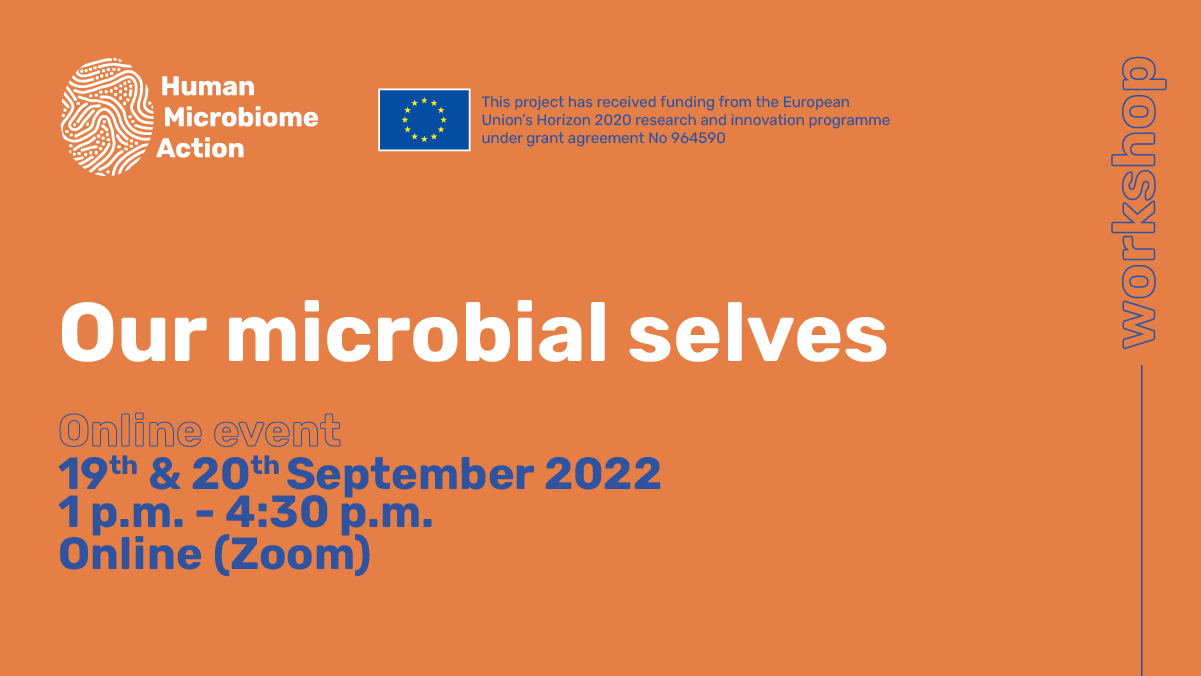Our Microbial Selves – What does it mean to be human?
Microbiome research has the potential to be a major lever for future public health. Acknowledging that human health does not only depend on our genetics, environment and behaviour but that also the trillions of microorganisms in and on our bodies impact us changes everything.
Human Microbiome Action organised an online workshop to find out more about the relationship between humans and their microbiomes. In this two half-day, co-creative event, we brought together people from different backgrounds. The aim was to reflect on how humans relate to the microbes that live within their bodies. We wanted to know how that relationship affects the way we view ourselves as human beings and the way we view our health and well-being.
The workshop took place online, on the 19th and 20th of September. In total, seven people from scientists & ethicists to journalists attended the event. Health emerged as an important but also controversial topic. Some participants mentioned that it is an unattainable state, yet it is comprised of the practices that we engage in the pursuit of such a state. The participants reflected on what a healthy microbiome looks like and shared the sources and practices they engage with to achieve a healthy microbiome. We discussed how to decide what health practices to include in our daily lives to improve the relationship with our microbiome. Participants reflected on how our microbiome is permeable and how the relationships between our microbiome and the microbiome of our environments and the other beings that inhabit them shape how we relate to the world around us.
The microbiome is the community of microorganisms living in human bodies, mostly inside the human gut. Our project wants to explore whether this knowledge offers opportunities to improve health and prevent diseases. We investigate whether microbiome research may offer options for citizens to care for their microbiome, through diet, microbiome health supplements or lifestyle and what has been the experience of citizens and healthcare providers so far. Knowing how we see our microbes in relation to ourselves allows us to understand why, if at all, we engage in practices of care towards our microbes. This reflection is relevant to anyone that engages in microbiome care, as well as towards manufacturers of self-monitoring technologies, ethicists, scientists, policymakers, science communicators, and many others.



